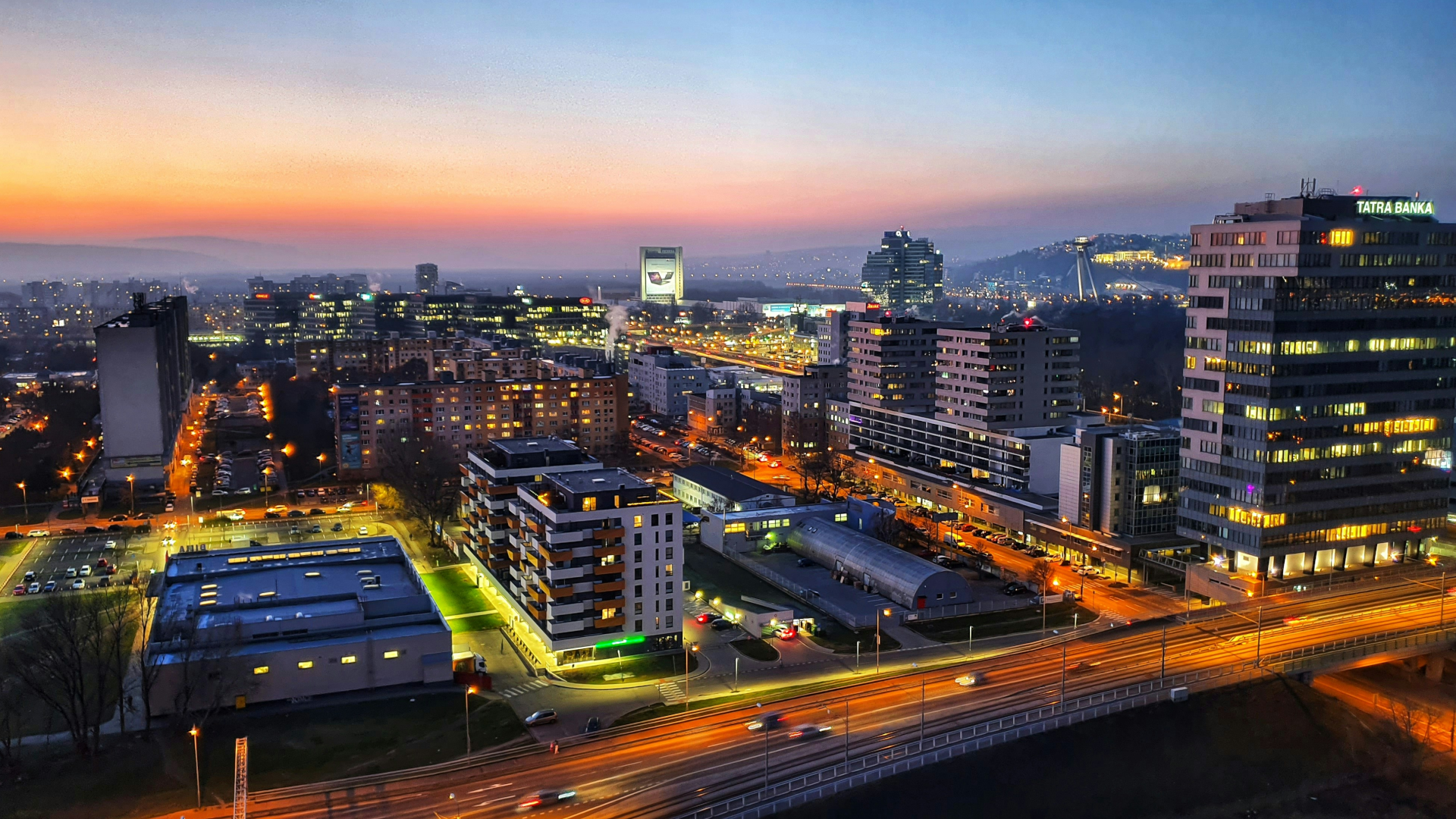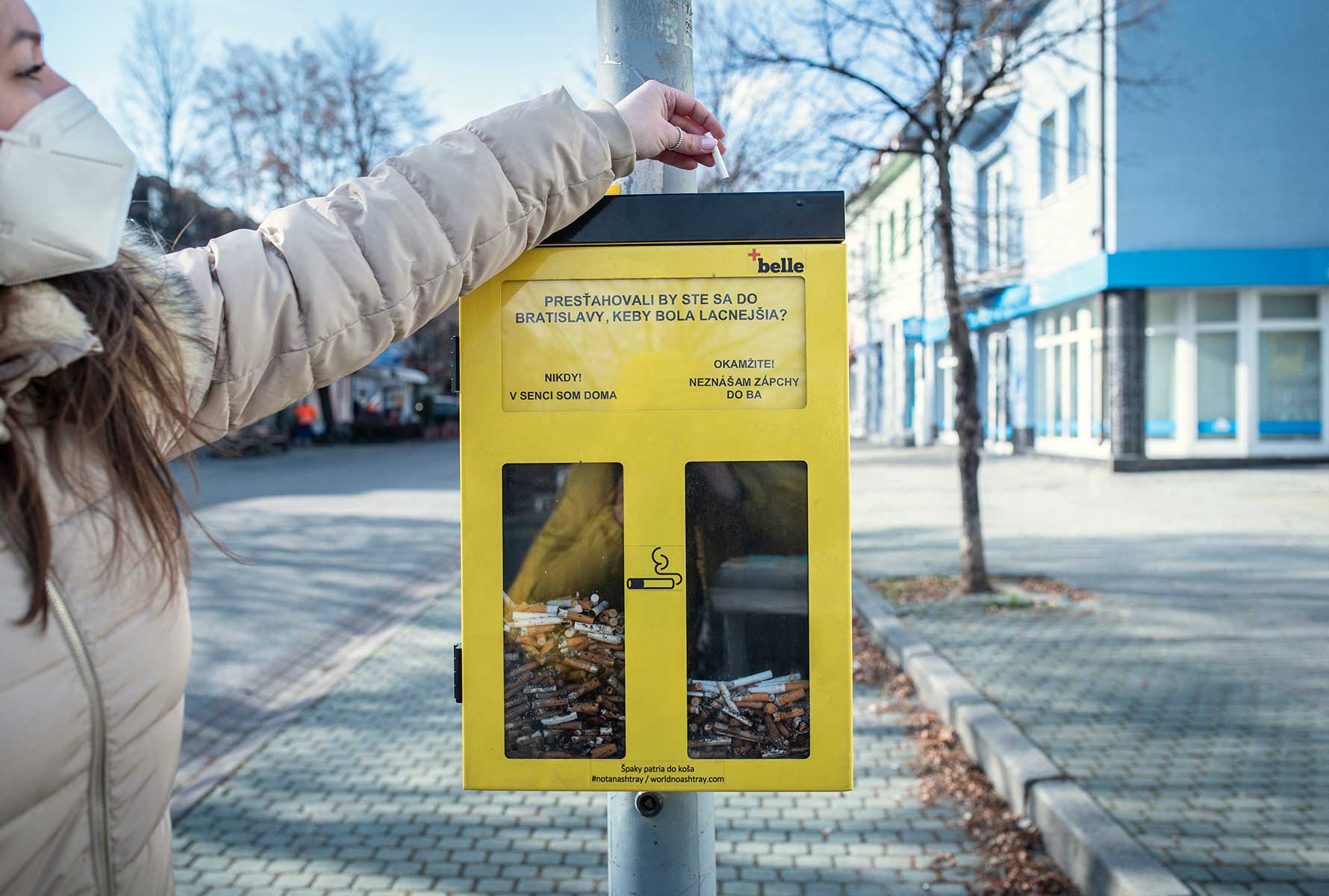Around Bratislava, containers specially designed for cigarette butts have been set up by the local council. Once full, their contents are being upcycled into asphalt roads, preventing tons of chemicals and plastic waste from entering the natural environment.
Every day, a whopping 18 billion cigarette butts are thrown away.
Over a single year, that amounts to more than six trillion cigarettes – but only one-third of these will be properly disposed of. The vast majority of cigarette butts are thoughtlessly discarded on roads, parks, waterways, and other public spaces.
Hoping to put an end to this pesky source of litter, the local municipal waste management company operating in Bratislava, Slovakia’s capital city, collaborated with two companies called Ecobutt and SPAK-EKO.
Together, they installed a series of specialised containers around pop-up Christmas markets to incentivise visitors to properly discard their cigarette butts. Later, this waste would be processed and turned into asphalt used to pave local roads.
Interestingly, cigarette butt filters can be recycled into fibres that can be used as an admixture for asphalt. The project in Bratislava not only promotes the development of more sustainable roads but also provides a solution to the difficult problem of managing cigarette waste and disposal.
Ecobutt had already constructed a short road partly using discarded butts in a nearby city with much success, inspiring local councils in Bratislava to initiate a similar project in the capital.
![]()






















